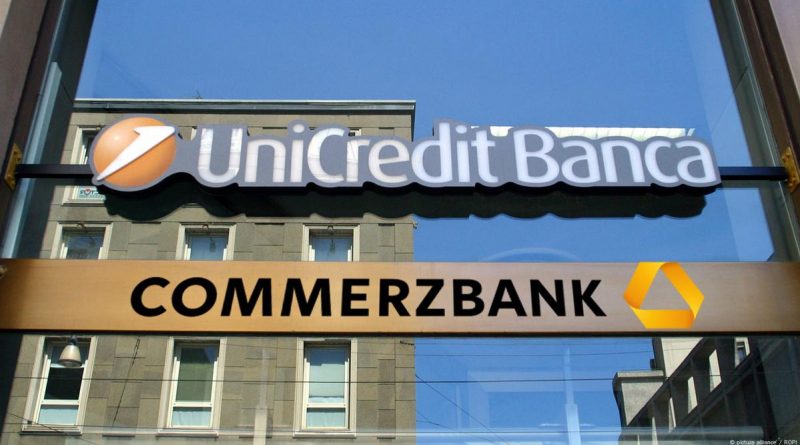UniCredit’s Pursuit of Commerzbank: A Struggle Between Growth and National Sovereignty
Johannes Sasse
Staff Writer
Italy’s UniCredit makes a bold move to gain control of Germany’s Commerzbank, raising concerns among German officials about the potential loss of national financial sovereignty. Commerzbank, one of Germany’s largest banks, was rescued by the German government during the 2008 financial crisis and has since recovered, making it an attractive acquisition target. However, the German government opposes UniCredit’s takeover bid, citing fears of job losses, reduced access to funding for small businesses, and the impact on Germany’s economic independence. This article will explore the reason for the timing of the takeover bid, UniCredit’s motivation, and the political and regulatory challenges a potential deal is already facing and will continue to face.

On September 4, 2024, Germany announced plans to reduce its 16.49% stake in Commerzbank, valued at approximately €2.56 billion. This stake was initially acquired during the 2008 financial crisis as part of a government-led rescue effort to stabilize the bank. Since then, Commerzbank has repaid a significant portion of the €18.2 billion it received in bailout funds and has returned to profitability as of 2021. The decision to sell follows the bank’s improved financial performance, with shares rising 22% this year.
Italian banking giant UniCredit acquired an initial 9% stake in Commerzbank from the German government following the government’s decision to reduce its ownership in the bank. It announced on September 23 that it has increased its stake to 21%. UniCredit is now actively seeking approval from the European Central Bank (ECB) to raise its ownership to as much as 29.9%, a move that could significantly reshape the German banking landscape.
A merger between UniCredit and Commerzbank would create one of Europe’s largest cross-border banking entities, with combined assets nearing €1.5 trillion. This would position the new entity as a dominant player in Germany’s lending market, especially to small and medium-sized enterprises, or “Mittelstand.” The merged institution would surpass Deutsche Bank in domestic revenue, becoming the top private lender to German businesses. However, despite its substantial presence in commercial banking, the new entity would still lack a strong investment banking division, limiting its ability to compete with U.S. financial giants on a global scale.
Commerzbank has long been viewed as a prime acquisition target due to its integral role in the German financial system and its extensive relationships with the “Mittelstand.” However, the bank has faced difficulties since the 2008 financial crisis, when it required government intervention. These struggles, combined with its relatively low valuation compared to its assets, have left Commerzbank vulnerable to potential takeovers. Over the years, several merger attempts have been made, most notably with Deutsche Bank in 2019. That deal fell apart due to concerns over job losses, integration difficulties, and financial risks. Commerzbank’s strong presence in European markets such as Poland and the Czech Republic further enhances its appeal to foreign buyers seeking to expand their influence in Germany and the broader European region.
UniCredit, under the leadership of CEO Andrea Orcel, is aggressively pursuing mergers and acquisitions to solidify its position as a leading European banking powerhouse. Known for his expertise in dealmaking, Orcel is focused on creating a “European champion” capable of competing with U.S. megabanks and offering seamless financial services across the continent. His strategy hinges on using UniCredit’s financial strength and surplus capital to acquire undervalued assets like Commerzbank, thereby gaining a foothold in Germany’s crucial banking market. Orcel believes that consolidating European banks is essential for achieving scale and competitiveness on the global stage, despite the political, regulatory, and operational challenges that such moves often entail.
To complete the acquisition of a larger stake in Commerzbank, UniCredit must secure approval from the European Central Bank (ECB), which is mandatory for any purchase exceeding 10%, 20%, 30% and 50% in a supervised lender. The ECB’s evaluation process includes a review of UniCredit’s financial health, the quality of its management, and the ability of the combined entity to meet supervisory standards. The ECB has been supportive of cross-border mergers as a means of reducing inefficiencies and high costs in the eurozone’s banking sector, which has lagged behind its U.S. counterparts in scale. The approval process generally takes up to 60 days, with the possibility of a 30-day extension, and involves both the ECB’s supervisory board and its Governing Council.
Despite the financial and strategic appeal of the deal, the German government has expressed reservations about UniCredit’s takeover ambitions. Chancellor Olaf Scholz has characterized UniCredit’s bid as an “unfriendly attack” on Commerzbank and has emphasized the government’s preference for maintaining the bank’s independence. German officials are particularly concerned about the potential impact on national interests, including the risk of significant job losses, reduced financial control, and diminished access to credit for small German businesses. The prospect of ceding a key player in the German banking sector to a foreign entity has raised alarm, especially given Commerzbank’s strong connections to the domestic economy.
Although the government has begun reducing its stake in Commerzbank, it has temporarily halted further sales in a move widely seen as an effort to discourage UniCredit’s pursuit of a full takeover. Political resistance, combined with regulatory challenges, suggests that while UniCredit’s push for control may succeed in part, achieving a complete acquisition of Commerzbank could prove difficult.
In conclusion, UniCredit’s pursuit of Commerzbank represents a pivotal moment for the European banking sector, highlighting both the opportunities and challenges of cross-border mergers. While UniCredit seeks to strengthen its presence in Germany and create a European banking powerhouse, the German government remains firm in its opposition, citing concerns over national interests and job security. The outcome of this battle will not only shape the future of Commerzbank but also set a precedent for similar deals across Europe. If successful, UniCredit’s acquisition could catalyze further consolidation in the eurozone, but political and regulatory hurdles will be key determining factors. Ultimately, this ongoing struggle reflects the complexities of balancing financial growth with national sovereignty.
Contact Johannes at Johannes.Sasse@student.shu.edu

